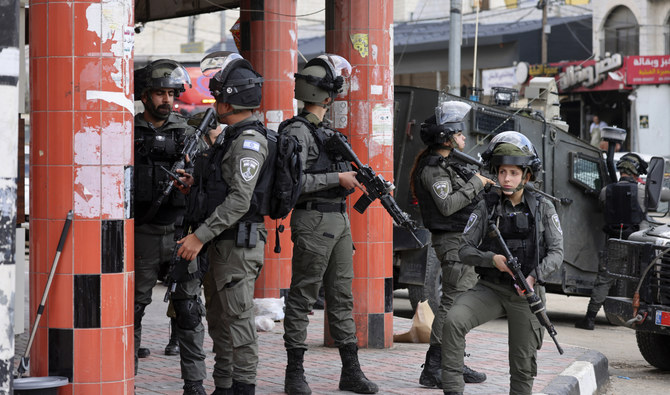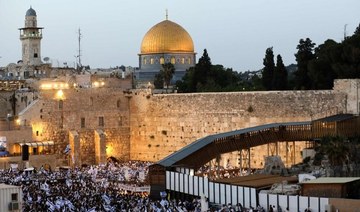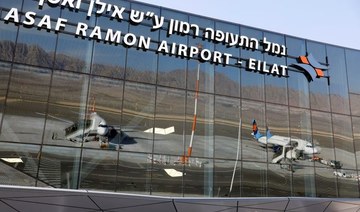RAMALLAH: The excessive force used by the Israeli forces against civilians during incursions into Palestinian territories has resulted in children living in constant fear and anxiety, a report has said.
The Defense for Children International Palestine movement has documented the testimonies of youngsters in Jenin who have been traumatized by military action.
The movement said in its report that, in addition to violating the right to life of 17 children since the beginning of the year, the practices of the Israeli forces had resulted in significant effects on other children.
This had manifested itself in their behavior, thinking, and academic performance. The violence they had witnessed had violated their rights guaranteed by international law and threatened their psychological and social security, it said.
Among the 17 children killed since the beginning of this year, six were from Jenin.
Children had been used as human shields. They were detained for long hours in their homes which were used as military barracks and sniper and observation points during the storming of the city and its camp. All of this greatly affected the children, the report said.
A 17-year-old said: “While my colleague Mahmoud Al-Saadi, 17, and I were heading to school in the morning, the Israeli army stormed the camp and started shooting from all directions. He was killed.
“We were planning together to graduate from school, go to university, and study together, but all of that was shattered.”
A 16-year-old said: “The occupation’s raids into the camp have become routine.
“The army enters at any time, so I can no longer leave the house. I am afraid of the army’s raids while I am outside the home.”
Khaled Quzmar, DCIP director, told Arab News that the Israeli army’s use of excessive force had left Palestinian children with no sense of security and no confidence in the future.
He said: “Children live in the situation of hopelessness. For example, a child was found in Dheisheh camp moving around with his will written on a piece of paper in his pocket, because he was afraid that he would be in the wrong place at the wrong time and might be killed.”
Quzmar said that the 17 children killed by the Israeli army did not pose any security threat to the soldiers. They were killed while carrying out daily tasks.
He added that when a child returns to his classroom and finds a bouquet in the place of a classmate killed by the Israeli army, it leaves a deep psychological mark on them.
He said that Palestinian children in the areas of repeated military action, such as Jenin camp and Dheisheh refugee camp near Bethlehem, needed psychological support sessions because life had become worthless for them.
The testimony of another 17-year-old read: “In every raid there are martyrs, shootings, destroyed homes and property.
“Bullets penetrated the walls of our house. Danger pursues me while I am in bed. When I want to move inside the house, I must crawl on my stomach for fear of a sniper or stray bullets.
“Death is more merciful than this fear and anxiety. For more than a year, I have been unable to sleep normally. Sometimes I wake up to the sound of bullets and explosions, and other times I wake up due to nightmares. I no longer distinguish between dreams and reality.”
A 15-year-old said: “[The camp] has become full of pictures of martyrs, and there is a story and memories behind every martyr. From the window of the house, I saw young men wounded by the occupation’s bullets left to bleed until they died, and I also saw completely burned bodies of martyrs.
“The occupation forces killed our teacher, Jawad Bawakna. He was the teacher closest to us. He sent us energy and hope through his activities and constant movement, full of vitality.
“He had a great ability to support us psychologically in light of these conditions in the camp.
“We lost one of the most important sources of psychological support. The school has become a painful memory for our loved ones, and we are trying to stay away from it as much as possible.”
Israeli armed forces surrounded a house during one of their incursions into the Jenin camp. They took the man residing there away from his wife and two children, Tolin, 2, and Misk, 1.
The father later said: “The behavior of the two daughters changed radically after this incident, especially Tolin, who turned from an active into a secluded child, attached to her mother and distracted, afraid of any sound or movement, except for the frequent nightmares and bouts of crying.”




























